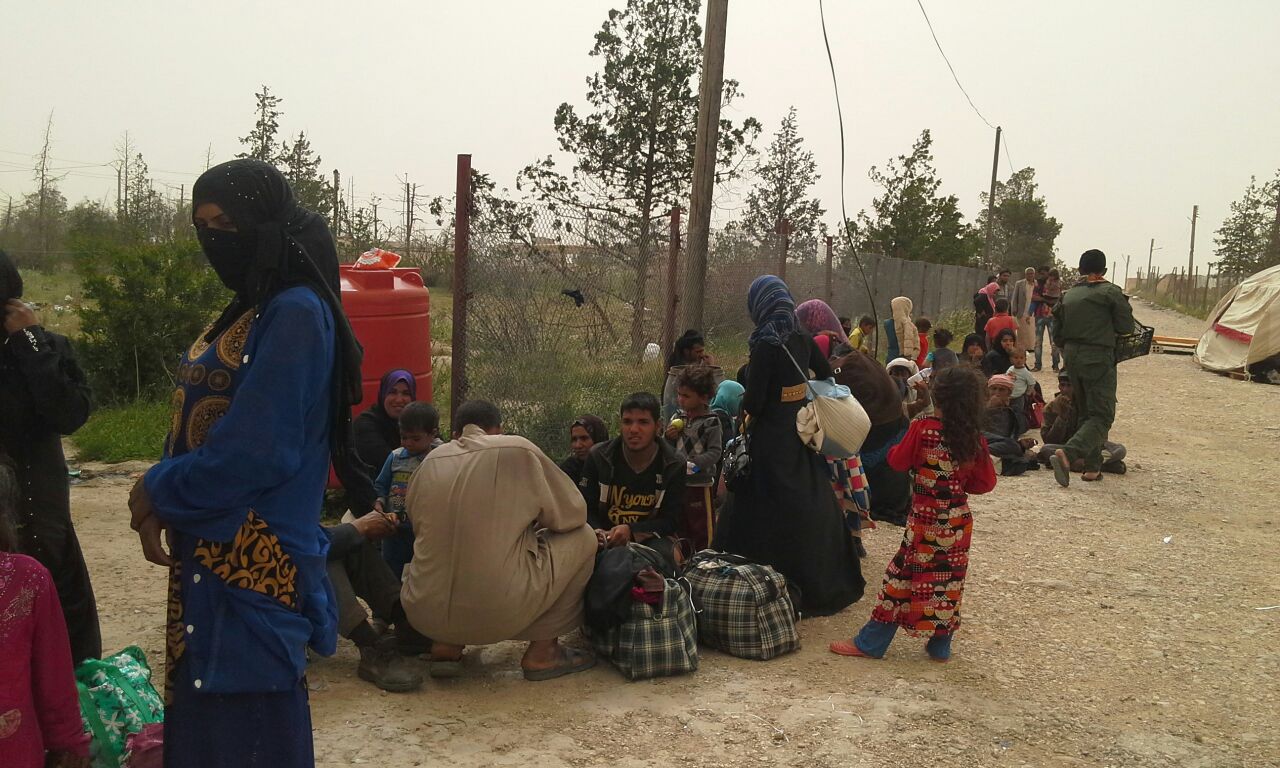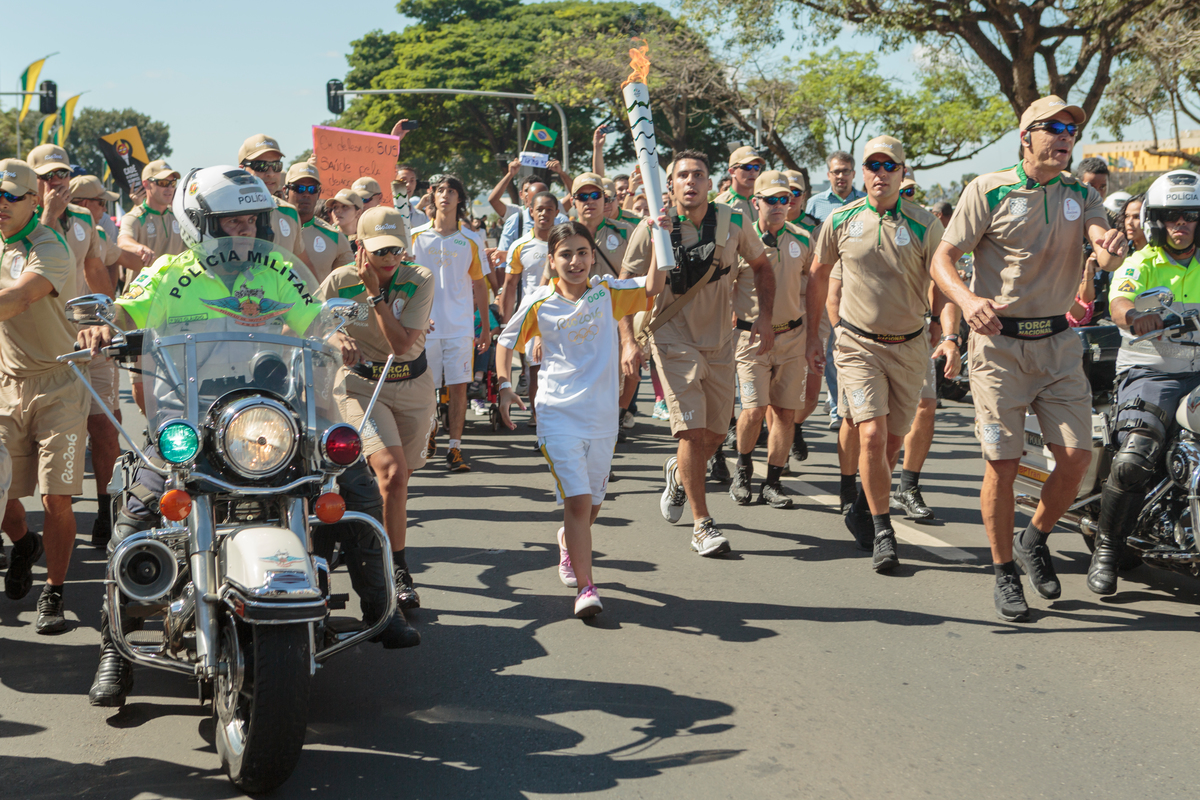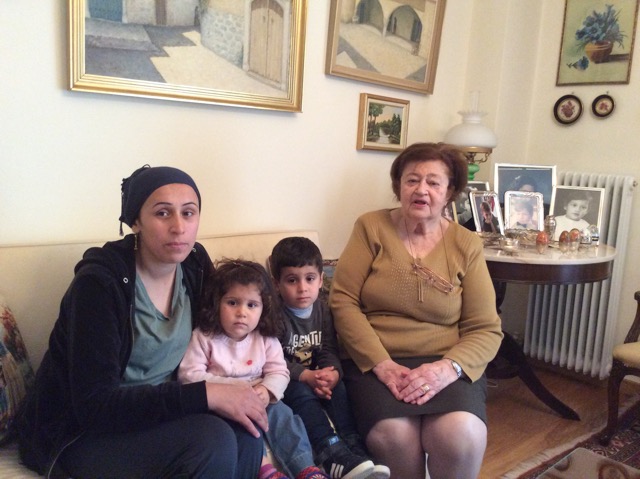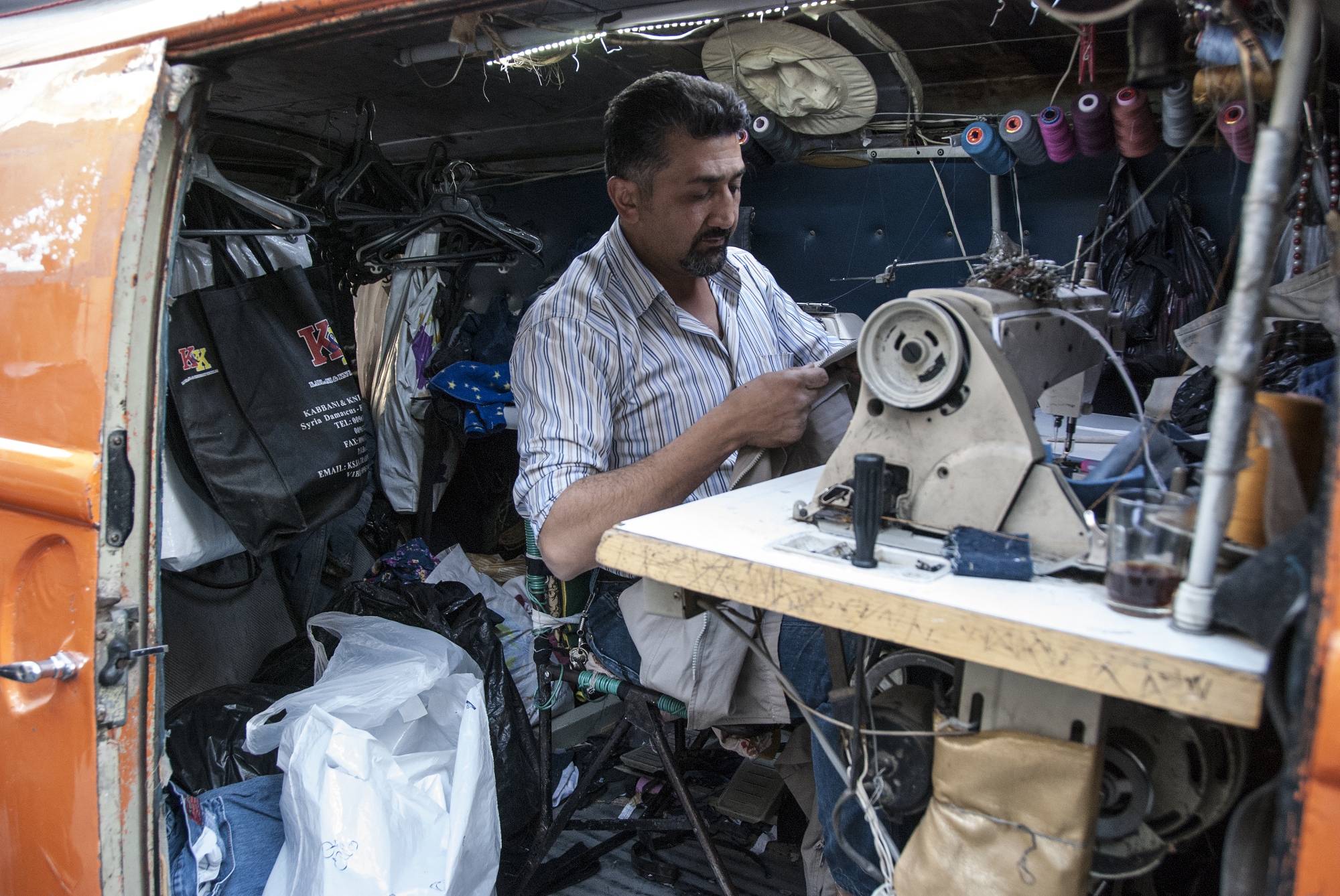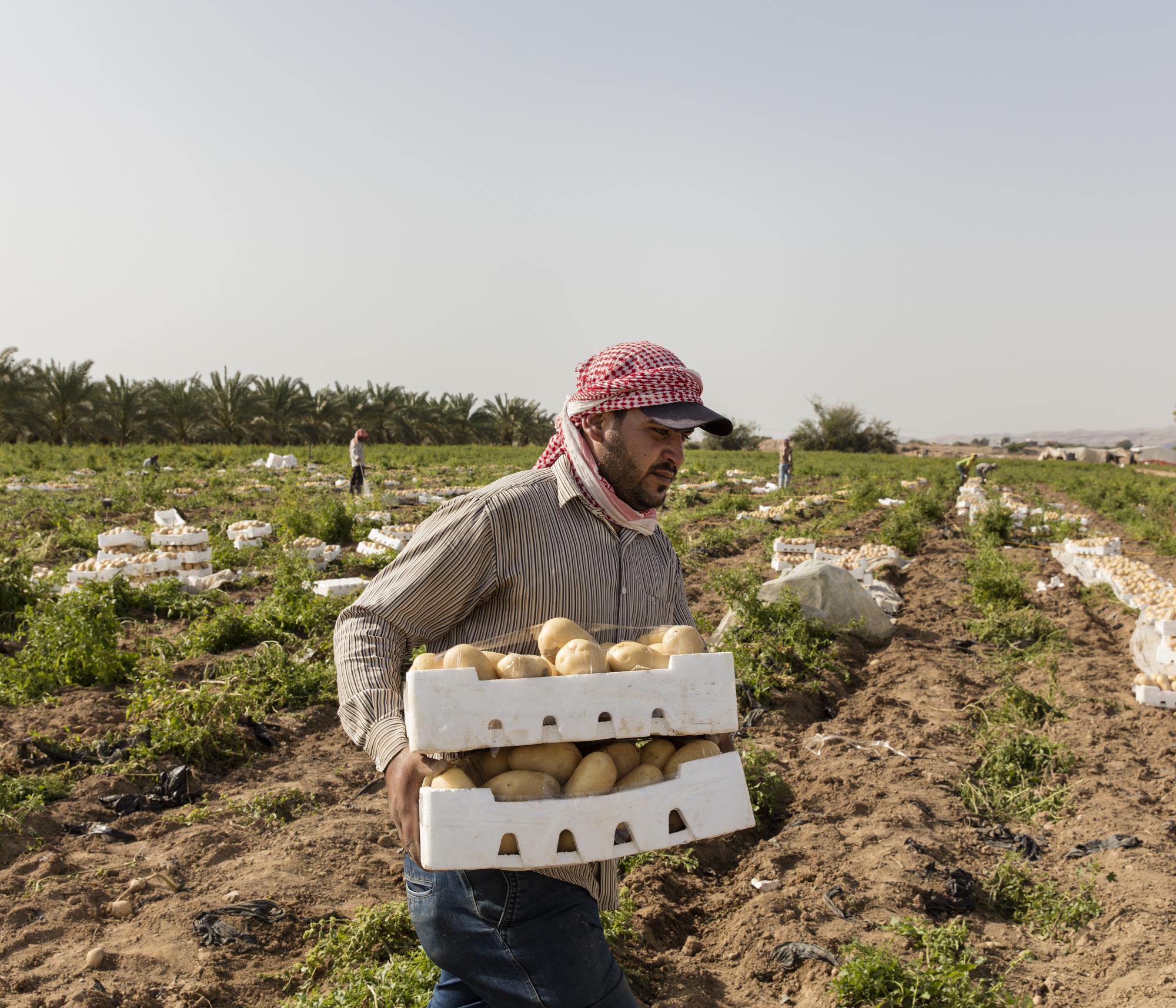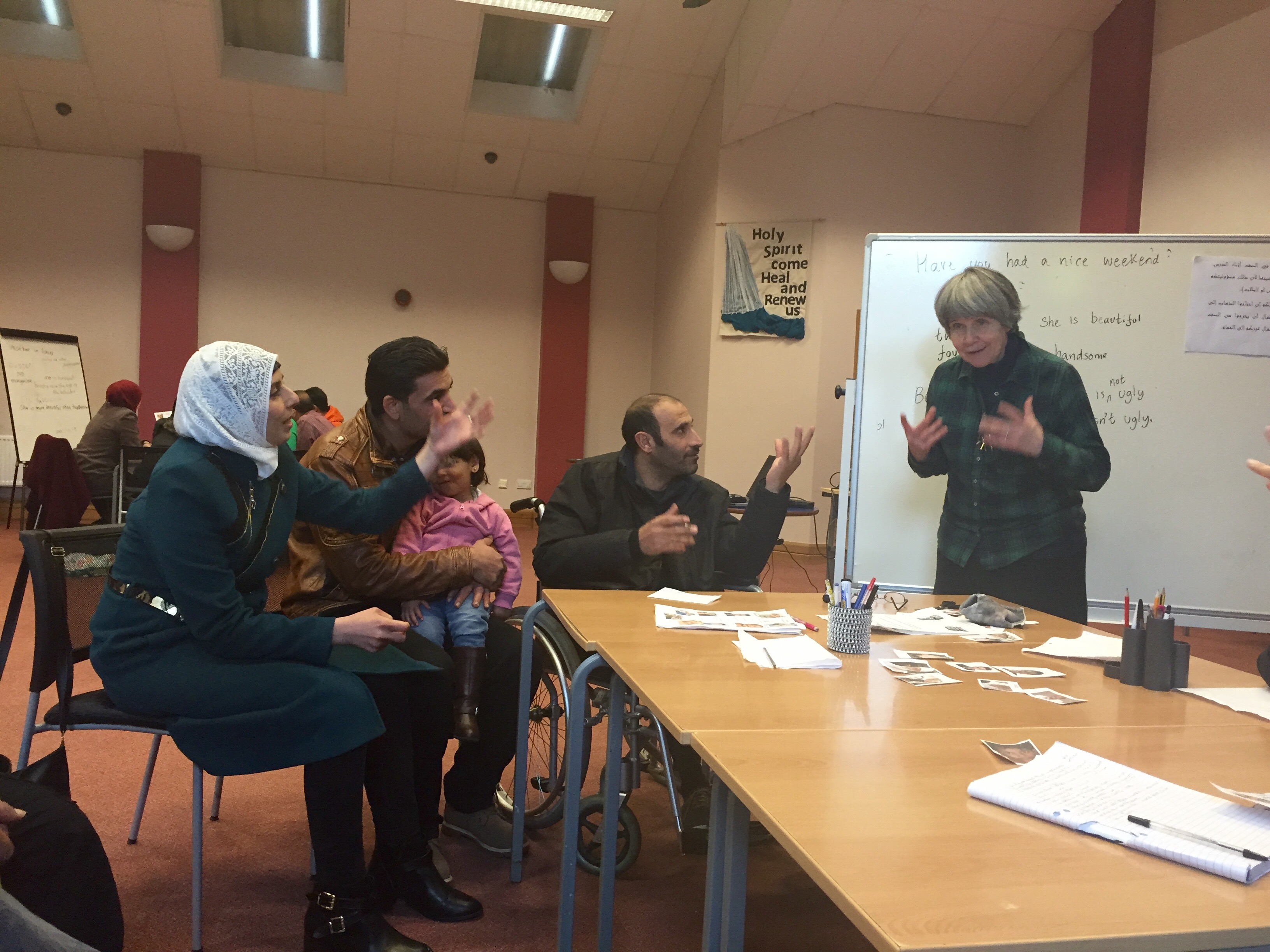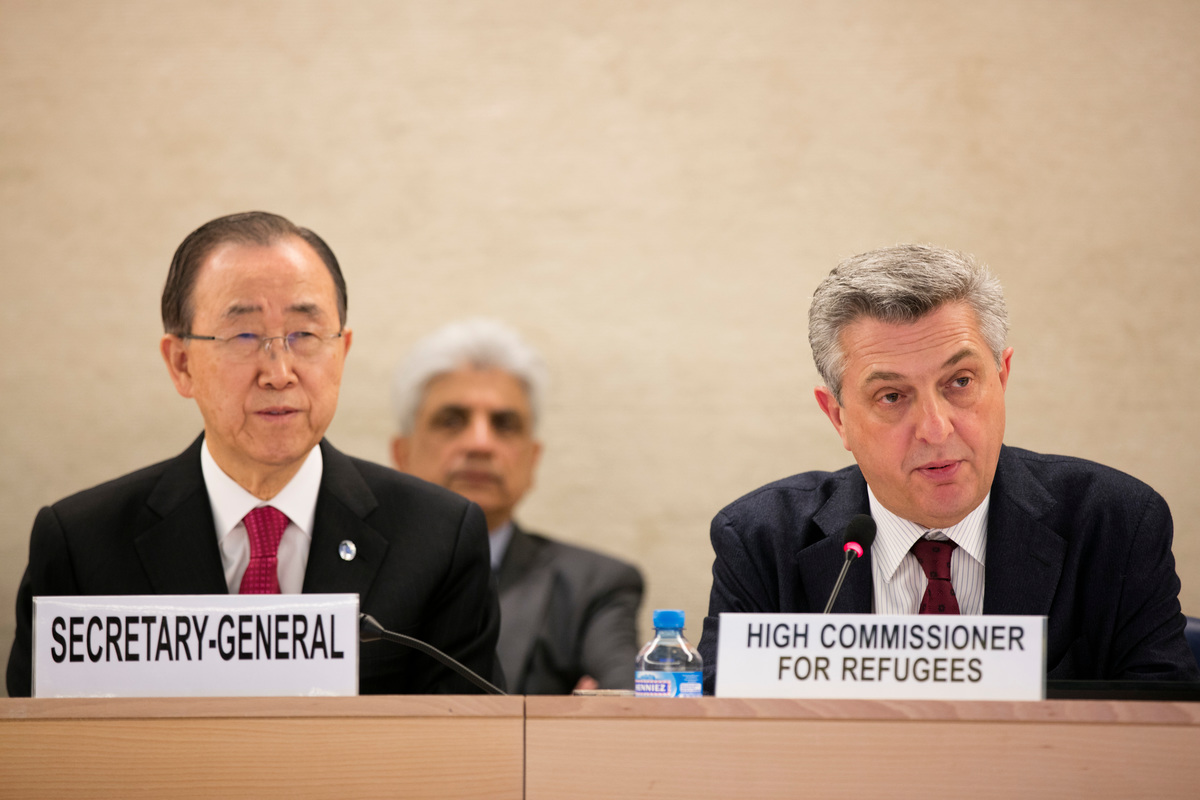Syrian risks all to get his pregnant wife to safety in Jordan
Syrian risks all to get his pregnant wife to safety in Jordan

IRBID, Jordan, October 11 (UNHCR) - It was a devastating piece of news. Last year, not long after the start of the Syrian conflict, Shadi,* a taxi driver living in Homs, learned that his wife had miscarried. The shelling and intensifying gunbattles in the Syrian city had been too much for her, he said. The news was particularly painful because the couple had been waiting for 17 years - all their married life - for a child.
Then, unexpectedly, his wife, Fatima,* became pregnant again. This time, Shadi made up his mind. "I decided to leave Syria for the sake of my wife and children," he told UNHCR in the north Jordan city of Irbid. About a month ago, Fatima gave birth by caesarean section to twins, Loai* and Hala,* in an Irbid hospital. "We'd waited so long for this day," said the delighted new father.
There are some complications. Hala is still in hospital, resting on a green blanket inside an incubator because of a kidney complaint. Three times daily, Fatima rides across the hilly city by bus to breastfeed her daughter in the hospital, before returning to their rented apartment to do the same for her son.
And the family's finances are suffering. The hospital is charging about US$4,400 for Hala's intensive care. Shadi's mother has been selling her gold jewellery to cover the US$110 monthly rent and utilities cost. Despite the difficulties, Shadi says he is not feeling any pain: "We are blessed," he stressed.
A field officer from UNHCR visited the family earlier this month to photograph the newborns and register them as refugees, which will give them access to free health care and cover the hospital bill. Their registration could also mean a monthly cash grant of up to US$200 to care for the family.
Wherever they end up, those fleeing Syria have made difficult choices along the way, not knowing where their journey might take them. For Shadi, the decision was particularly challenging. Before he left Homs, doctors warned him not to travel, fearing for Fatima's condition. They were concerned that attempting to escape the city as battles raged could trigger a miscarriage.
But Shadi was determined. He parked his taxi in front of his house, drained the fuel, got a lift out of town and paid a second car to drive them to the border. It was midwinter and snowing at the time, he recalled. But "my temperature was about 1,000 degrees [Celsius]," he said. He was beside himself with worry.
At the border, Shadi tried to talk his way out of Syria. The border guards complained that they had been hearing a lot of stories about why people were leaving, and routinely turned people back if they suspected that they planned to stay on the other side. Shadi told the guards that he was going to Jordan for medical reasons: "All of a sudden so many Syrians leaving for medical reasons, it's an epidemic!," said the guard, dubious. After an hour or so, he let them go.
Later Shadi's sister and mother tried to cross, but only his mother was allowed to proceed. In Irbid, the family found an apartment in a building owned by a Syrian landlord which is home to another 52 Syrian families, many of them from Homs. It's not particularly clean, but it is safe.
Shadi and his relatives are among tens of thousands of refugees living in urban environments in Jordan. The country is known abroad for its sprawling Za'atri refugee camp, but only 35 per cent of refugees live there; the remainder, like Shadi and his family, live on their own in cities, paying rent with some help from UNHCR and the Jordanian government.
Today, Loai and Hala already closely resemble each other, says the proud father. "She is skinny, but they have the same way of moving, the same manner."
Last week, a UNHCR field officer, Huda Al-Shabsogh, visited the family at home and in the hospital in order to register the twins as refugees and provide them with refugee certificates, which will qualify them for assistance, including the cost of Hala's care.
Al-Shabsogh, a Jordanian lawyer, photographed the newborns and took copies of their birth certificates. "I am not ashamed to say that I love this work," she said afterwards. "It is good to visit families in this way and to see them in their homes, and to understand what they are experiencing." That is particularly true when the story has a happy ending.
* Names changed for protection reasons
By Andrew Purvis in Irbid, Jordan

